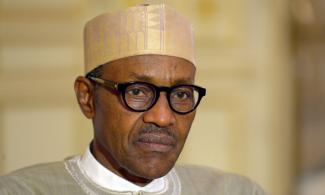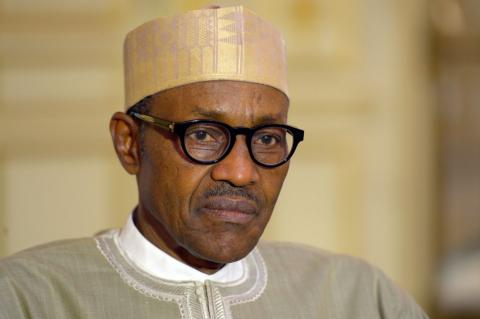
Nigeria is gripped by the familiar anxieties of an economy in distress. This escalating crisis has demystified a president once thought capable of astute, if not magical, economic management. In their desperation for respite, many Nigerians are now paradoxically yearning for the corruption that they and their leaders blame for their economic woes, but theirs is not a nostalgia for corruption per se but for a period in which, despite or because of corruption, the flow of illicit government funds created a sense of economic opportunity and prosperity.
During a recent trip to Nigeria I sampled the opinion of various segments of the Nigerian people to gauge their perspectives on the troubled economy of President Muhammadu Buhari, which just entered recession. One refrain I heard fairly regularly was “bring back corruption.” It is not an entirely new rhetoric. For months, Nigerians have been advancing this idiom on social media as a sarcastic rebuke of what they see as Buhari’s narrow, obsessive focus on corruption.
“Bring back corruption” mocks the logic making the fight against corruption the sole preoccupation of governmental while hardship stalks citizens who previously occupied safe economic perches, and while the government fails to ease the economic strictures and contractions caused by the said fight against corruption.
When the refrain first appeared in Nigeria’s dynamic political lexicon, its architects intended to use it to draw attention to the tension between fighting corruption, which Nigerians believe to be responsible for their economic predicament, and worsening economic conditions. It was meant as an indictment of Buhari’s singular focus on corruption to the detriment of sound economic management.
Many of those who invoke the refrain today do so half-seriously to make two points; first, to illustrate the primacy of economic survival and wellbeing above all else, including the fight against corruption; and second, to yearn for a return to the imperfections of the pre-Buhari era, when, in their reckoning, corruption was rampant but life was easier, cheaper, more livable.
“Bring back corruption” is profound beyond the awareness of those deploying it as an idiom of political critique. It underscores the paradoxical, often unacknowledged political and economic utility of corruption in Nigeria — the functional, instrumental entwinement of corruption in statecraft as well as corruption’s capacity to mediate the economic relationship between Nigerians and the state.
The Buhari administration’s feisty rhetoric on corruption ignores the ways in which governmental graft has been democratized in the polity, trickling down in the form of monetary flows, patronage, expanding volumes of business transactions, and general liquidity. The Nigerians I heard saying “bring back corruption” were not simply saying that they preferred the corrupt but more prosperous era of former president Goodluck Jonathan to Buhari’s less corrupt but leaner time, although their rhetoric signals that order of preference. They were not endorsing corruption either.
Without realizing it, they were making an insightful comment on how corruption is paradoxically, and contrary to conventional political rhetoric and anti-corruption jargon, the fuel of the Nigerian economy, sustaining everything from major real state transactions to the patronage economies of petty retailers. In Nigeria, the trickle down effect of governmental corruption is enormous. Corruption generates secondary and tertiary ripples and transactional economies that benefit even the pepper seller in the market.
Rather than simply being a vice that has invidiously infiltrated the institutions of the state, corruption has become integral to the patronage networks through which politics and governance are conducted. This is a controversial but important point to make. For decades, corruption was at the very center of the state, politically and economically. The circulation of illicit funds, which move stealthily from government to the private sector and back again through a convoluted loop in repeated circular flows, became the mainstay of the economy.
Historian Steven Pierce makes the point eloquently in his book, Moral Economies of Corruption, arguing that, to understand the history of statecraft in Nigeria, one must understand how corruption, in its various governmental iterations, has functioned as an arbiter in both adversarial and productive political engagements. Corruption is the recurring decimal in politics and governance. Rather than being an anomalous virus of politics, what we call corruption, Pierce argues, is integral to how the Nigerian state is constituted and reconstituted by political elites.
The corollary to Pierce’s argument tacks back to the “bring back corruption” meme. While corruption flourished unchecked in the previous administration of Goodluck Jonathan, that corruption found its way in trickles to all the consequential corners of the economy, lubricating the sinews of an economy that depends, for good or ill, on the state’s revenue mobilization, spending, and leakage.
Nigerians who secured jobs and livelihoods working in or tending to the investments of corrupt politicians and bureaucrats didn’t care where the money came from. They were happy to have a job or to partake in the financial rewards of investments and projects financed by illicit money.
The concept of an economy nourished by illicit financial flows may be hard to grasp for many outside the Nigerian context but it is the crux of the Nigerian economic dilemma: you may have to undermine the economy in the interim by fighting the political graft that sustains it, in order to ultimately save it.
In Buhari’s Nigeria, the avenues of leakage are being plugged and corruption is being fought, however imperfectly, preventing the trickles that traditionally lubricate the economy. This has trapped funds, which usually circulate to power the economy, at the top of the state-dominated economic food chain. The non-circulation of corruptly acquired funds does not necessarily mean that corruption is not occurring. Rather, it indicates that corruption is now restricted to a small circle of people in government, who are too spooked and too discreet, given the current anticorruption measures, to release their illicit funds into the real economy.
Aside from sensational, multipronged investigations, high profile arrests, and multiple, ongoing prosecutions of corruption cases, the government has implemented a set of measures to keep illicit flows of government funds to a minimum. The most important of these measures is the Single Treasury Account (TSA), a policy instrument designed to centralize and domicile the funds of all federal government agencies in a single account at the Nigerian Central Bank, preventing the proliferation of multiple government accounts that are difficult to monitor, prone to abuse, and are the primary source of funds for lazy commercial banks feeding fat on government deposits.
The result is a cash crunch never before seen, a squeeze that has affected all sectors of the economy, and that, coupled with the government’s import and foreign exchange restrictions, has led to a loss of confidence and a drastic reduction in liquidity.
When Nigerians say “bring back corruption” they are thus decrying this cessation of secondary and tertiary benefits from the pipelines of official corruption. They are expressing a nostalgic longing for an economy in which corruption may have been the order of things but in which this corruption performed a functional, productive service to the economy by loosening and oiling its crevices.
Once you shut down the pipelines of monetary flows with origins in corruption, the logical outcome is an economy starved of its lifeblood.
This logical, unintended consequence of the war on corruption calls for a loosening of other avenues of monetary and transactional flows, such as the foreign exchange and import sectors, both of which, if managed intelligently, can generate increased domestic trade and arbitrage as well as patronage that would mitigate the squeeze caused by the disruption of illicit financial flows.
This is one of the biggest blind spots of the Buhari administration. In its righteous zeal to fight graft, the Buhari administration has not reckoned with how corruption, like it or hate it, had become the mainstay of the economy and how fighting it without easing restrictions in other corners of the economy would inevitably generate self-defeating outcomes and hurt the Nigerians the fight is meant to help.
Much of this failure to recognize a complicated, nuanced reality stems from the government’s determination to live up to a mystique of unflappable incorruptibility that Nigerians erected around Buhari, and which the president and his party leveraged to dislodge Jonathan and the PDP in last year’s elections. The elections are over. The president needs to free himself from the burden of an election-time persona that keeps him from governing realistically and effectively.
The “bring back corruption” meme illustrates the ways that governmental corruption has become instrumental to the quotidian transactional momentum of the Nigerian economy. It shows that serious efforts to fight corruption without a corresponding set of ameliorative and stimulative measures can be counterproductive, causing increased hardship and turning citizens against anticorruption measures, no matter how sincere the measures may be.
The author can be reached at [email protected]
